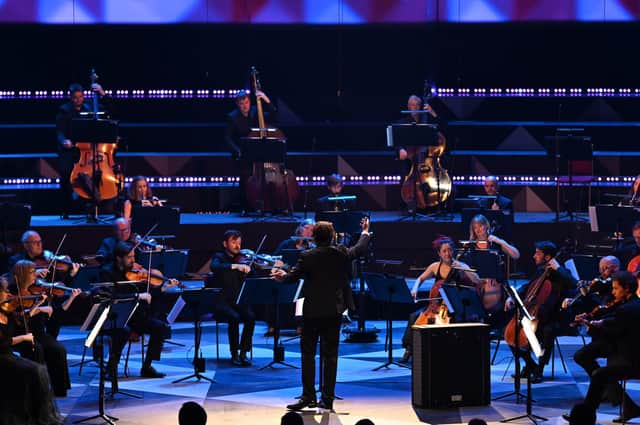Music review: SCO, Maxim Emelyanychev & Dmitry Sinkovsky, Queen's Hall, Edinburgh


SCO, Maxim Emelyanychev & Dmitry Sinkovsky, Queen’s Hall, Edinburgh *****
From the pomp and grandeur of last week’s season opening celebration in the Usher Hall, the Scottish Chamber Orchestra returned to its more usual stomping ground of the Queen’s Hall for a bewitchingly intimate evening that brought the audience right up close to the performers. Indeed, with the slightly socially distanced, almost-all-standing orchestra occupying about half of the Hall’s downstairs, it felt almost like a concert in the round – not only intensifying ties between listeners and musicians, but also shining a bright spotlight on the inner workings of what was happening on stage.
Advertisement
Hide AdAdvertisement
Hide AdIt was very much a two-man affair: directing duties of the concert’s three Baroque concertos by Leclair, Locatelli and Vivaldi were shared between SCO principal conductor Maxim Emelyanychev at the harpsichord and ace visiting violinist Dmitry Sinkovsky. They clearly thought as one mind, with a similarly vivid, supple, breathtakingly expressive perspective on this flamboyant music, passing directing reins back and forth, Emelyanychev leaping from his seat to galvanise the SCO players, Sinkovsky jigging around out front, playing to all directions of the Hall and even directly to the orchestra. Any notion of formality was thrown to the wind in favour of compelling expression and connection. It drew breathtaking intensity from the SCO players: rarely can two opening chords have been crammed with as much meaning and expression as they were in the opening Leclair D major Concerto, for example.
Separating the three concertos were two 20th-century pieces looking back on earlier times – Poulenc’s rather arch, Renaissance-inspired Suite française and Emelyanychev’s gutsy orchestral arrangement of Hungarian dances by Ferenc Farkas – which, though immaculately delivered, showed up just how vivid the original music was. Sinkovsky’s surprise encore – the aria ‘Dove sei, amato bene’ from Handel’s Rodelinda – not only showcased his sublime parallel skills as a countertenor, but also provided a calm, thoughtful comedown after an evening crackling with electricity.
A message from the Editor
Thank you for reading this article. We're more reliant on your support than ever as the shift in consumer habits brought about by coronavirus impacts our advertisers.
If you haven't already, please consider supporting our trusted, fact-checked journalism by taking out a digital subscription at https://www.scotsman.com/subscriptions